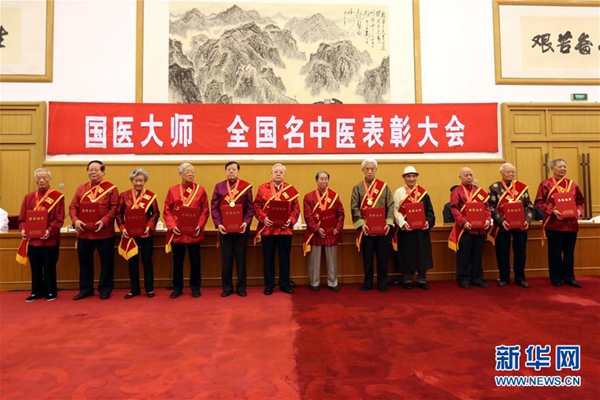Award ceremony recognizes 30 new masters of TCM
China Daily, June 30, 2017

China recognized 30 new national masters of traditional Chinese medicine during a ceremony in Beijing on Thursday. [Photo/Xinhua]
Of the new masters, 25 are men and five are women, and all have practiced TCM for at least 50 years, according to the State Administration of Traditional Chinese Medicine.
They range in age from 66 to 96.
The award ceremony was held by the administration, the National Health and Family Planning Commission, and Ministry of Human Resources and Social Security.
"The masters should serve as role models for the country's TCM practitioners to wholeheartedly serve their patients, promote TCM, and help pass down the oriental medical science via education and training," Wang Guoqiang, head of the administration, said while addressing the ceremony.
According to Wang, it is the third time the Chinese government has recognized national TCM masters, bringing the total to 90.
Together with the 30 masters, another 99 TCM practitioners from across the country were awarded the title of "famous veteran TCM doctor".
Qi Xuan, a division director of human resources at the China-Japan Friendship Hospital, said that such high-level recognition encourages young TCM doctors.
Xu Runsan, 91, a TCM doctor at the hospital who specializes in gynecology, is one of the newly recognized masters.
"He's in good health and still sees patients every week," Qi said.
TCM is a medical science largely based on clinical experience and it requires lifelong dedication to become a good TCM doctor, she added.
Nationwide, Western medicine has become the mainstream and shoulders the lion's share of the overall supply of medical care services.
But the government has introduced a slew of measures and policies to facilitate TCM development.
China's top legislature late last year adopted a law on TCM, allowing it a bigger role in the country's medical system.



 Reply With Quote
Reply With Quote





